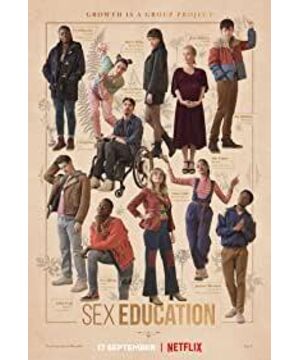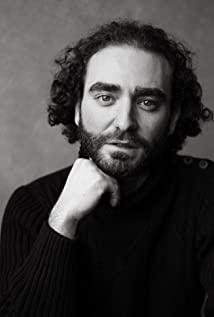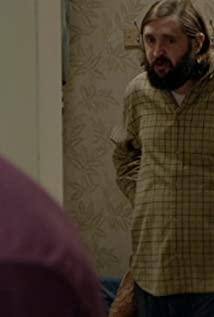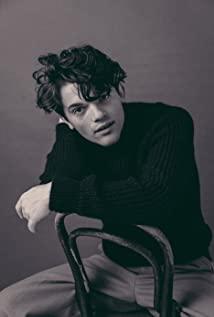The title is so direct, the kernel is extremely powerful. In the past few years, there are actually many short and medium dramas of this kind of educational theme, such as "the end of the fucking world" and "13 reasons". The two films have similarities in the choice of actors and BGM. But I think SE has the highest level of completeness among these: Although there are only 8 episodes, the things to be said are at least clear. Some dramas will fill a lot of information and bury a lot of lines at the beginning, which is particularly exciting and fascinating. , But it always feels wrong in the end. Just as many authors say that the creation is "let the characters speak for themselves", the same is true for the drama. Whether it is the setting of the characters or the topics that are emitted at the beginning, they will develop uncontrollably to a certain extent. The lens is just In an observation window, what the producers have to do is to choose: to selectively show the stories that happen in the same time and space to the audience, and choose the points to be highlighted. But people are greedy, they always have grand visions and want to leave more possibilities for the results. After this, the ending is often either a hasty ending or a mess. The original main topic is also blurred, which is regrettable. SE's smoothness and just the right point ends, and the screenwriting skills are really visible at a glance.
I can’t help but list these distinctive characters: the boy next door Otis, the little black brother Eric, the big boy Adam, the swimmer representative Jackson, the idiot brother Sean; and the girls with personality, each of which I like very much: especially like passing away. The female director’s eyeliner + the pink-haired interesting thoughtful girl Maeve in the certificate of the reader, the simple rich girl Aimee with cute front teeth, and the unicorn girl Lily who is super suitable to be a Takasha model who wants to break through all day. There is Ola, the tooling kid. Each individual is so vivid, like skittles, oh no, this analogy is not accurate. The colors of the skittles are different but the taste under the icing is very similar, and each of them is completely different in a hardcore style. , Each one shines with a diamond-like light and hits the heart directly, but it is not the kind of grandstanding and unconventional (girls in a dozen or twenty years are really one of the wonderful beings in this world.
1. Leave me alone!
The relationship with my native family is the first topic I want to talk about. In the play, only the boys are the subjects of the family that are fully shown. I don't know if it is a coincidence or a deliberate act, or a collective unconscious inherited by the entire human society: boys are given more expectations. An impressive scene was on a small hill where Jackson confided to Maeve that his mothers did not give him room to breathe, and Maeve said, "They will cry because of your failure, and you still don't know what you are satisfied with." The energy from the caregiver is what boys and girls need most and least need. They are in an awkward period of life: everything seems to be ready to be independent but essentially floating and confused, hoping to get the role of other subjects such as the caregiver. The treatment that an independent individual deserves, and I hope that someone can say love to him unconditionally. This is the self-centeredness of adolescence, and the incomplete grasp of reality when the frontal lobe of the brain has not yet fully developed. After Jackson achieved good grades, the white mother encouraged him to do better. What a stressful and suffocating love. The white mother applied the appropriate force from an adult's perspective but did not realize that it was too hard for the adolescent Jackson. . In their quarrel, I finally realized that we humans are innately disgusted with the so-called "sacrifice." Sacrifice is not always moving. This kind of voluntary giving is supported by the default rules of reciprocity in society (requests for return). Altruistic behaviors are more self-proclaimed than psychologically speaking. Altruistic behaviors at least focus on the interests of others, while "sacrifice" seems to emphasize the loss of the actor, regardless of what the behavior points to. This is a kind of Information imbalance: The cognition of the victim and the cognition of the recipient of the behavior are likely to be different, and the resulting communication contradiction is self-evident.
There is also Adam, a big boy. His eyes are very scratching. Even when he is beating someone, I can't see evil, I can't see cruelty, and it's more sad. I think he is a gentle and even docile boy who needs to be understood more than all the other characters in the play. Part of his pressure comes from his excellent family background (of course this is the source of pressure), but more comes from himself. The good tutoring from a young age made him feel impressed with his father and other elders, and he hopes that he can satisfy them. This is the kind child. It seems inevitable to be with the black brother Eric. The free and happy atmosphere of sand sculpture on Eric's body is fatal to Adam. It is an existence that eagerly and unconsciously wants to follow. Eric is the happiest character in the whole show. His expression is vivid and his body language is rich and exaggerated. This is due to his family, his father who silently protected him. Adam said, "I would rather be an ordinary person than the son of a principal." I hope that all parents should first be parents rather than other identity tags when facing their children.
2. Who am I? What do i want?
This is the core of all youth education films. Whether it starts with sex or suicide (13 reasons), it ultimately points to the ultimate task of adolescence: the establishment of self-identity.
The little black brother Eric experienced a short period of self-doubt and self-enclosed dark green time. It hurts to look at him. The director is very careful to keep the protagonist Otis in his tri-color jacket and Eric's colorful clothes are not heavy. At first, I really accepted the incompetence and looked at it with a funny mentality. Until Otis and Maeve finalized the assignment of clinic responsibilities in the retro shabby public toilet, and Eric looked stupidly and expectantly asked "What about me", and then until his birthday, Eric was dressed up but was put a pigeon by Eric, lost his mobile wallet, and was attacked by a idiot. With three combos, I realize that their friendship has gone from cracked to broken, and the dark clouds above Eric's hovering fish finally have a chance to take advantage of it. He began to wonder if he should be normal in the eyes of the world. boy. Here, clothes have become a window of his emotions (I like the design of this point. The friends who have watched the third season of skam should know that whether it is even sickness or when the little angel is in a bad mood, they choose to wear a hat. When we want to get something The most obvious thing about people, things, or things in psychological isolation is the lowered brim of the hat and the strong earphone volume, cutting off the input of the sensory channel), I eccentrically hope that he can quickly find a support, a big boy who appreciates his love for him.
The most complete and healthy personality in the play should be Ola. She is a confident and happy girl. Obviously, the mad dad who knows what love is gives her enough temperature (God, what an important role father played in the growth of a child) Ah), although it is a pity for Maeve, but seeing their kisses feels wonderful. Otis, the male protagonist next door, who couldn't start with himself, made up the whole drama. His evolution is very real. Who can connect the organs that excrete body waste with the same sex pleasure from the beginning? He and Lily are the same to some extent, a romantic and sensible personality, "Let them out of control", so they rode their bicycles down the hill, seeing this scene as if there was wind blowing across my cheeks.
Due to the cultural background, the high school life in the play is beyond our desire. Maybe I don't desire it, but I still feel envious. I am not sure if I have the courage to live in such an environment, but no matter where I am, I believe we can grow up soundly, faster or slower.
View more about Sex Education reviews











